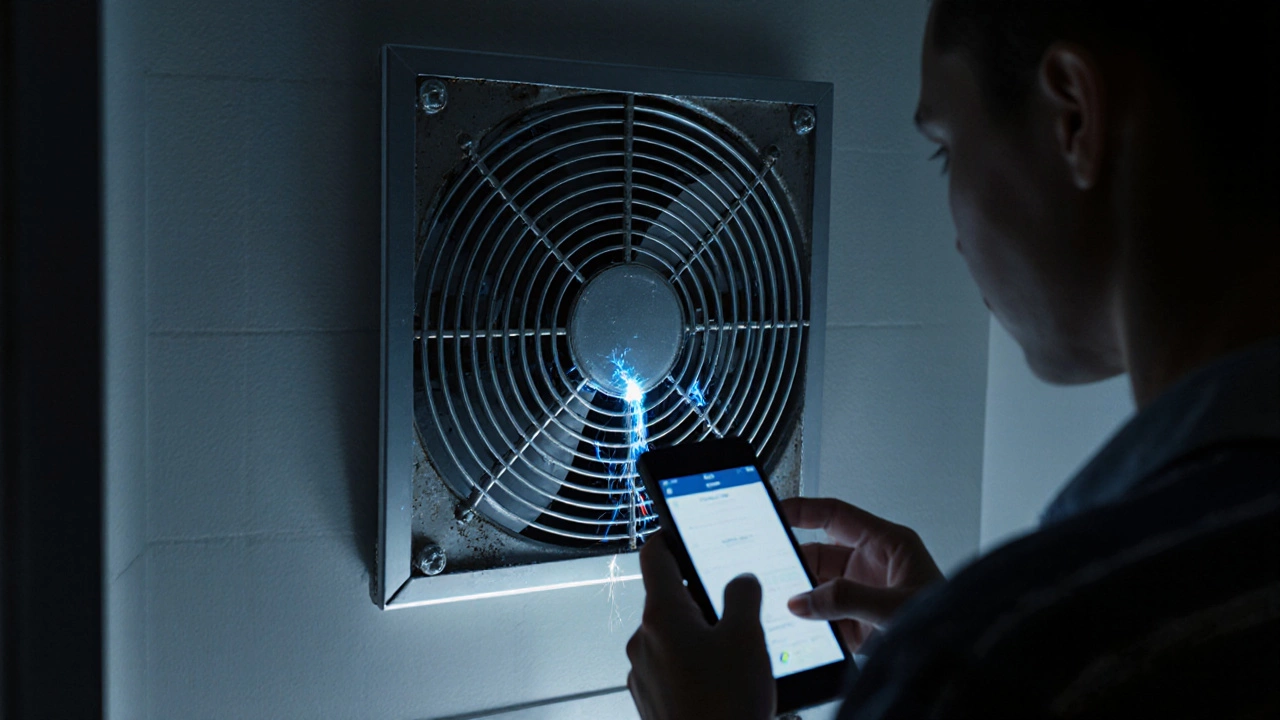Find out which trade-electrician, plumber, or HVAC technician-should repair your extractor fan, what certifications to check, typical costs, and DIY safety tips.
Ventilation Specialist Guides – Expert Tips and Safety Advice
When working with ventilation specialist, a professional who designs, installs, and maintains airflow solutions for homes and businesses, also known as vent specialist, you get someone who keeps fresh air circulating, stops moisture build‑up, and reduces indoor pollutants. A ventilation specialist encompasses extractor fan, a device that pulls stale air, steam, and odors out of kitchens or bathrooms maintenance as a core duty. They also require a solid grasp of indoor air quality, the measure of pollutants, humidity, and ventilation effectiveness inside a building to recommend the right fan size and placement. Keeping an eye on energy consumption, the amount of power a ventilation system uses helps homeowners lower bills while staying comfortable. And because poor airflow can raise fire risk, the chance of ignition caused by overheating or blocked ventilation, a specialist’s regular checks are a key safety measure. In short, good ventilation links airflow devices, health, cost, and safety together in a single system.
Why Proper Ventilation Matters for Every Home
Good airflow does more than just whisk away cooking smells. It directly influences indoor air quality by diluting dust, mold spores, and volatile organic compounds that can trigger allergies or headaches. When a ventilation specialist installs an extractor fan, they consider the room’s volume, typical humidity levels, and the type of activities that generate moisture. The resulting air exchange rate determines how quickly pollutants are removed, which in turn affects energy consumption: a well‑balanced system runs shorter cycles and draws less electricity. Moreover, the specialist knows that a clogged or incorrectly wired fan can become an overheating hazard, raising fire risk. By scheduling routine clean‑ups and checking electrical connections, they keep the fan running efficiently and safely. This holistic approach means you get cleaner air, lower utility bills, and peace of mind that your home isn’t a ticking time bomb.
Most people assume that buying the cheapest extractor fan will save money, but a ventilation specialist knows the long‑term trade‑offs. A low‑cost fan may lack a heat‑resistant motor or proper seals, leading to higher energy use and a greater chance of failure. Over time, those hidden costs exceed the initial savings. The specialist therefore matches fan specifications to the kitchen’s size, the cooker’s output, and the homeowner’s usage patterns. They also advise on smart‑run timers or humidity sensors that cut power when the air is already clean, further reducing energy consumption. In addition, they explain how proper ducting material prevents condensation, which can feed mold growth and degrade indoor air quality. All these details come together to create a ventilation system that protects health, saves money, and stays reliable year after year.
While the technical side is important, the practical side is what most readers need. Below you’ll find a curated list of articles that dive deeper into specific issues you might face. From “Can you safely leave an extractor fan on?” to troubleshooting common problems with washer drum bearings (which can affect moisture levels in laundry rooms), each post offers step‑by‑step guidance. Whether you’re a DIY‑enthusiast looking to clean your own fan, or you prefer to call a pro for a full inspection, the collection covers the full spectrum. Expect clear explanations of how to test a fan’s motor, what signs indicate poor indoor air quality, and when the cost of a repair outweighs the benefit of replacement. Armed with this knowledge, you’ll be ready to make informed decisions about your home’s ventilation.
So, if you’re curious about how an extractor fan works, want to lower your energy bills, or need to ensure your home meets fire safety standards, keep reading. The articles ahead give you practical tips, real‑world examples, and the expert insight a qualified ventilation specialist brings to every job. Let’s jump into the resources and get your home breathing easier.

